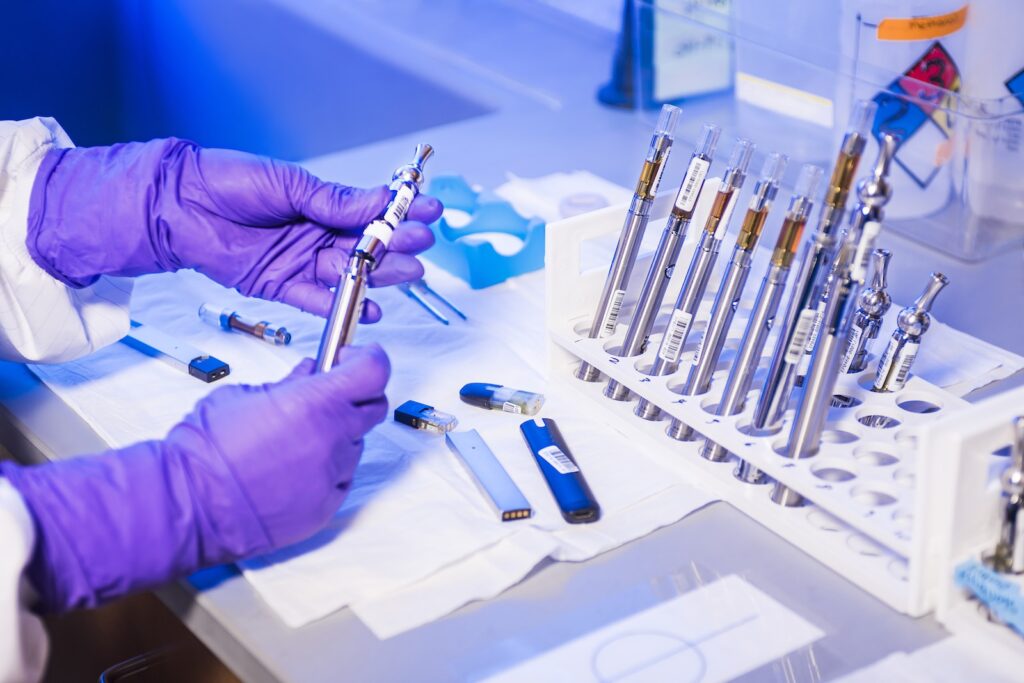Table of Contents
Introduction: The Importance of Innovations in Medicinal Sciences
Innovations in medicinal sciences have changed the landscape of healthcare, providing breakthrough treatments and life-saving technologies that were once unimaginable.
The use of technology and cutting-edge research techniques has enabled researchers to gain a better understanding of human biology, resulting in superior medical therapies for various illnesses. Innovations such as precision medicine, integrative medicine, and personalized treatments have provided patients with more tailored care than ever before. As new discoveries are made every day, we can expect even more profound advancements that will accelerate progress towards improved health outcomes.
Despite challenges along the way such as regulatory hurdles and funding issues, innovations in medicinal sciences continue to take place at an unprecedented rate, making significant differences in patient’s lives all over the world.
This article explores some of the major breakthroughs in medicinal sciences that have positively impacted healthcare delivery across different parts of the globe, including disruptive technologies that could change how we approach disease treatment entirely. These developments show promising potential not only for current but also future generations who will benefit from enhanced quality health care services. Stay tuned for insights!
Breakthrough Technologies: Advancements That Have Revolutionized Medicine
The field of medicine has come a long way from the traditional methods of treatment. With the advent of technology, there have been numerous innovations that have transformed how healthcare is delivered and received. Some breakthrough technologies are:
- The Electronic Health Record (EHR)- This digital version of a patient’s record provides better coordination between healthcare providers to ensure quality care and avoid errors.
- Telemedicine- The use of technology to provide remote access to healthcare services through teleconferencing, video consultations, etc., has revolutionized the delivery of medical services especially in rural areas.
- Nanotechnology- Being able to manipulate materials on an atomic or molecular scale opens up possibilities for drug delivery systems and diagnostic tools that can target specific cells in the body with great precision.
- 3D printing- It is now possible to create customized prosthetics, implants or even organs using 3D printers. This technology has already brought hope to many patients waiting for organ transplants.
- Cancer immunotherapy – A form of cancer treatment which helps immune system fight cancer more effectively by strengthening its own disease-fighting abilities rather than directly attacking tumours themselves. Immunotherapies include CAR-T cell therapy another promising approach manipulating immune system cells known as T-cells in order to target malignant cells produced by certain cancers such as leukemia or lymphoma among others.. …
All these technologies bring new possibilities within reach that were once thought impossible leading us towards faster diagnosis times, improved treatments options & ultimately better health outcomes for patients everywhere.”
Precision Medicine: Personalizing Treatments for Better Patient Outcomes
Traditionally, medical treatments were a one-size-fits-all approach. Doctors would prescribe medications or procedures based on general guidelines and the patient’s symptoms, without taking into account individual differences that can affect how well the treatment works.
This is where precision medicine comes in. Also known as personalized medicine, it involves tailoring medical treatments to an individual’s unique genetic makeup and other personal factors such as lifestyle habits and environment.
By analyzing a person’s DNA through genomic testing, doctors can identify specific mutations or variations that may cause certain diseases or conditions. This information can then be used to develop targeted therapies that address the root causes of these issues rather than just treating their symptoms.
For example, breast cancer is not one disease but many different subtypes with distinct molecular features and response rates to various treatments. Precision medicine allows oncologists to analyze each tumor at a genetic level so they can select an appropriate therapy for each patient instead of using only traditional chemotherapy drugs.
In addition to cancer care, precision medicine has already shown remarkable progress in treating rare genetic disorders like cystic fibrosis and sickle cell disease by developing novel therapies tailored specifically to individual mutations causing those conditions……n universally adopted yet due to various challenges including data privacy concerns from sharing patients’ genomics data on big databases etc., its advantages are becoming more widely recognized by both physicians and patients alike due its huge potential benefits in delivering better outcomes while reducing healthcare costs compared with current standard clinical practices.
Integrative Medicine: Merging Traditional and Contemporary Approaches to Healing
Integrative medicine is a form of healthcare practice that combines conventional, evidence-based therapies with complementary and alternative medicines (CAM). Unlike traditional Western medicine that focuses solely on treating the symptoms of illness or disease, integrative medicine emphasizes an individualized approach to care that addresses the whole person – mind, body, and spirit.
Practitioners of integrative medicine blend science-based treatments with natural therapies to create a more comprehensive treatment plan for their patients. These can include nutrition counseling, acupuncture, massage therapy, meditation and mindfulness practices, yoga or tai chi exercises as well as herbal supplements. By utilizing these types of complementary treatments alongside conventional medical approaches such as prescription medications or surgery – practitioners are able to support patient healing from all angles.
The aim of integrative care is not only for relief from symptoms but also prevention and management. Integrative health professionals employ preventative measures along with therapeutic interventions in order to help people achieve optimal health over time.
One reason why many people choose integrative medicine is because it treats every patient uniquely rather than following a one-size-fits-all approach. Practitioners will often focus on both physical and emotional needs instead of just providing symptom relief alone. The idea behind this type of holistic treatment seeks to empower individuals so they may proactively manage their own health.
In summary: Integrative Medicine offers an innovative approach combining different forms of therapies in seeking effective ways towards wellness & preventing diseases using broader range or modalities other than drugs/surgery alone.
Future Trends: Disruptive Innovations That Are Changing the Landscape of Medical Research
Innovation is the lifeblood of medicine. In recent years, we’ve seen some major breakthroughs in medical research that have transformed patient care and revolutionized medical treatment. Looking ahead, there are several promising new technologies and trends that could have a significant impact on the way we approach health and wellness.
Artificial Intelligence (AI)
One of the most exciting developments in medical research is the use of artificial intelligence (AI) to improve diagnosis and treatment. AI can be used to analyze vast amounts of data from patients’ medical records, imaging tests, and genetic profiles to identify patterns and make predictions about disease progression. This has huge implications for personalized medicine – tailoring treatments to individual patients based on their unique biology.
Imagine if doctors could predict which cancer drugs would work best for each patient by analyzing their DNA? That’s just one example of how AI could change cancer treatment forever.
Gene Editing
The ability to edit genes offers tremendous potential for fighting diseases caused by genetic mutations. Gene editing tools like CRISPR-Cas9 allow scientists to cut out specific genes or insert new ones into living cells with unprecedented precision. This technology has already been used successfully in clinical trials for sickle cell anemia and other inherited disorders.
Gene editing could pave the way not only for cures but also preventive measures against genetically-linked conditions such as Alzheimer’s or autism.
Nanotechnology
Nanotechnology involves manipulating materials at a microscopic scale (one nanometer equals one billionth of a meter) using novel substances enabling us advance our study far beyond what is conventionally possible. Nanomedicine refers specifically to the application of nanotechnology in medical research, leveraging nanoscale materials to create new diagnostics or therapies such as nanostructured scaffolds for tissue engineering, nanoparticles for drug delivery and fluorescent probes to study cells.
Thanks to advancements like these, we may be able to treat diseases that were previously untreatable.
Big Data Analytics
The field of medicine is producing enormous amounts of data every day – everything from electronic health records (EHRs) and clinical trial results to genetic sequencing data. Combining various data helps us identify connections among factors. The technologies around big data analytics are still evolving but it has already shown great promise in building predictive models which foresee the onset before actual occurrence or real-time disease management strategies than crude reactive measures.
In future this will lead doctors towards a more proactive approach where they can monitor patients constantly using IoT devices and anticipate developments long before any noticeable symptoms manifest themselves making way for early treatments.
All things considered, there’s no doubt that disruptive innovations have paved the way forward bringing larger hopes riding on their foundations!
Conclusion: Accelerating Progresses in Medicinal Sciences Through Collaborative Innovation
Innovation is the cornerstone of progress in medicinal sciences. With the advent of new technologies and scientific breakthroughs, we have made significant strides towards understanding complex diseases and developing effective treatments. However, innovation alone is not enough to accelerate progress.
Collaboration among scientists, researchers, clinicians, and healthcare providers is essential for accelerating advances within the field of medicine. By working together, experts can combine their knowledge and expertise to develop groundbreaking therapies, precision medicines tailored to each patient’s unique needs.
The future of medicine lies in collaborative innovation. Through shared resources and collective expertise, we will continue to make rapid progress towards better health outcomes for patients worldwide. Whether it’s leveraging artificial intelligence (AI) or exploring alternative healing approaches like traditional Chinese medicine (TCM), collaboration fosters an environment where novel solutions are identified quickly.
To truly achieve our goals for advancing medicinal science forward will require unprecedented levels of cooperation between various stakeholders; governments funding research initiatives at universities while private firms provide financial support through grants or partnerships with academic programs as well as cross-industry collaborations aimed at overcoming challenges associated with bringing new drugs into regulatory approval processes faster than ever before!
The stakes have never been higher: chronic illness continues to rise globally while infectious diseases are growing more deadly every year – but by sharing resources and collaboratively innovating together across all sectors internationally across industries irrespective from culture boundaries alike- we remain hopeful that one day soon such obstacles may be conquered entirely.



